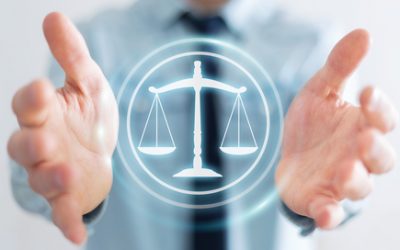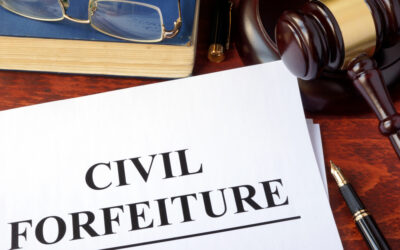
Operating a vehicle while intoxicated (OWI), more commonly known as Driving Under the Influence (DUI), is a grave transgression with repercussions that may extend beyond the accused, affecting their closest family members. When a spouse faces DUI charges, it’s understandable for their partner to experience worry and curiosity regarding this predicament’s potential legal and financial ramifications. This article seeks to elucidate the legal ramifications of a spouse’s DUI charge and examine the possible liabilities that could be imposed on the other spouse.
Spousal Liability for DUI: The General Rule
Under most legal systems, individual responsibility predominates, which asserts that a person is accountable for their actions and offenses. This includes cases involving driving under the influence. The overarching belief is that every adult can make their own decisions and should be held responsible for the consequences of those decisions.
This rule also extends to marital relationships. Even though the couple shares many responsibilities and commitments in a marriage, each spouse retains their legal identity. This means that, generally, a spouse is not automatically held liable for their partner’s actions, misdeeds, or offenses.
If your spouse finds themselves on the wrong side of the law, such as being arrested for a DUI, the legal responsibility for that action does not automatically transfer to you. You are not held responsible for their actions because of your marital bond. This stands true even in stressful and challenging situations such as a DUI arrest, where the emotional impact can be shared. Still, legal liability remains with the individual who committed the offense.
Understanding DUI Laws and Individual Liability
Driving under the influence is widely considered a criminal act across various jurisdictions. Nevertheless, the specific laws and regulations regarding DUI and liability can differ significantly from one jurisdiction to another.
You must acquaint yourself with the precise laws in your specific jurisdiction. This understanding will enable you to ascertain the potential level of liability you may face as a spouse in the event of a DUI charge.
Exceptions to the General Rule
As a general rule, individual responsibility ensures that spouses aren’t automatically held liable for each other’s actions, including offenses such as DUI. However, like many legal principles, certain exceptions exist that can, under specific circumstances, impose some level of liability on the non-offending spouse.
These exceptions are not universal and can vary greatly depending on the jurisdiction and the case’s unique circumstances. Some of these exceptions could include:
- Community Property States: In some jurisdictions, particularly those that follow the community property principle, spouses might share liability for debts accrued during the marriage, including financial penalties resulting from a DUI.
- Shared Ownership of the Vehicle: If the vehicle involved in the DUI incident is jointly owned, there might be situations where liability could be extended to the non-offending spouse.
- Negligent Entrustment: If a spouse knowingly allows their partner to drive while intoxicated, they may be held partially responsible for any damage or harm caused.
- Family Purpose Doctrine: In some states, a doctrine exists that holds the vehicle owner (which could be the other spouse) responsible for any damages caused by a family member driving the vehicle.
Given the complexity and variability of these exceptions, it is crucial to seek the advice of a legal professional, specifically one specializing in DUI cases. They can provide a comprehensive understanding of the laws applicable to your particular situation. By doing so, you’ll be better equipped to navigate the potential legal implications of your spouse’s DUI charge.
Joint Assets and Financial Consequences
At times, a DUI conviction involving one spouse can have implications on joint assets owned by the couple. Suppose your spouse, while driving under the influence, inflicts property damage or bodily injury onto others. In that case, those affected may have the right to seek compensation. This could impact the marital assets jointly owned by you and your spouse.
Jointly owned assets could include a variety of things. This ranges from homes and vehicles to financial assets like joint bank accounts and shared savings. If a court deems it necessary, these assets may be used to fulfill financial obligations arising from the DUI case, such as compensating for property damage or personal injury.
However, it’s important to note that the personal assets of the non-offending spouse are typically not at risk. These would include any property or financial holdings solely in the name of the non-offending spouse, separate from any marital or jointly owned assets. The principle of individual liability usually protects these personal assets from being utilized to settle the debts or liabilities of the other spouse.
Child Custody and Parental Rights
A DUI conviction for a spouse can potentially have repercussions in matters related to child custody and parental rights. Family courts primarily focus on safeguarding the best interests of the child or children involved. In this context, a DUI offense, often seen as an indication of irresponsible behavior, can be considered during court proceedings.
This conviction could potentially influence the court’s decision regarding visitation rights or custody arrangements. The court might perceive the offending spouse’s behavior as a potential risk to the child’s well-being, affecting parental rights. Given the possible implications, consulting with a legal attorney specializing in family law is crucial. They can provide insight and advice tailored to your situation, helping you navigate any potential challenges from a spouse’s DUI conviction.
Seeking Legal Advice
If your spouse is confronted with a DUI charge, promptly seeking legal counsel is of utmost importance. The complexities and potential implications of such a case necessitate professional advice. A well-versed attorney, especially one with expertise in DUI cases, can provide you with guidance specifically tailored to the laws in your jurisdiction and the unique aspects of your situation.
A skilled attorney can play a crucial role in protecting your rights. This could involve offering robust legal representation, should you need it, and ensuring that all proceedings are conducted fairly and under the law. Their knowledge and experience can be instrumental in safeguarding your interests and upholding your rights in the face of a spouse’s DUI charge.
Additionally, an attorney can offer invaluable advice regarding potential liabilities you may face concerning your spouse’s DUI. They can clarify possible financial consequences, how your shared assets might be affected, or any child custody or parental rights implications. By navigating the intricacies of the situation, they can help you better understand and manage the potential fallout from your spouse’s DUI charge. Contact us for more information.







